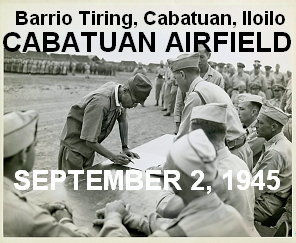
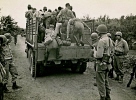
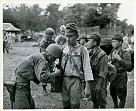
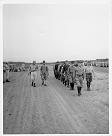
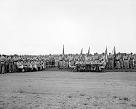
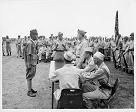
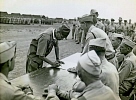
Col. Ryoichi Tozuka signs the surrender instrument
as Col. Raymond G. Stanton looks on.
Cabatuan Airfield
Barrio Tiring, Cabatuan, Iloilo
Panay Island, Philippines, September 2, 1945
|
|
- o -
|
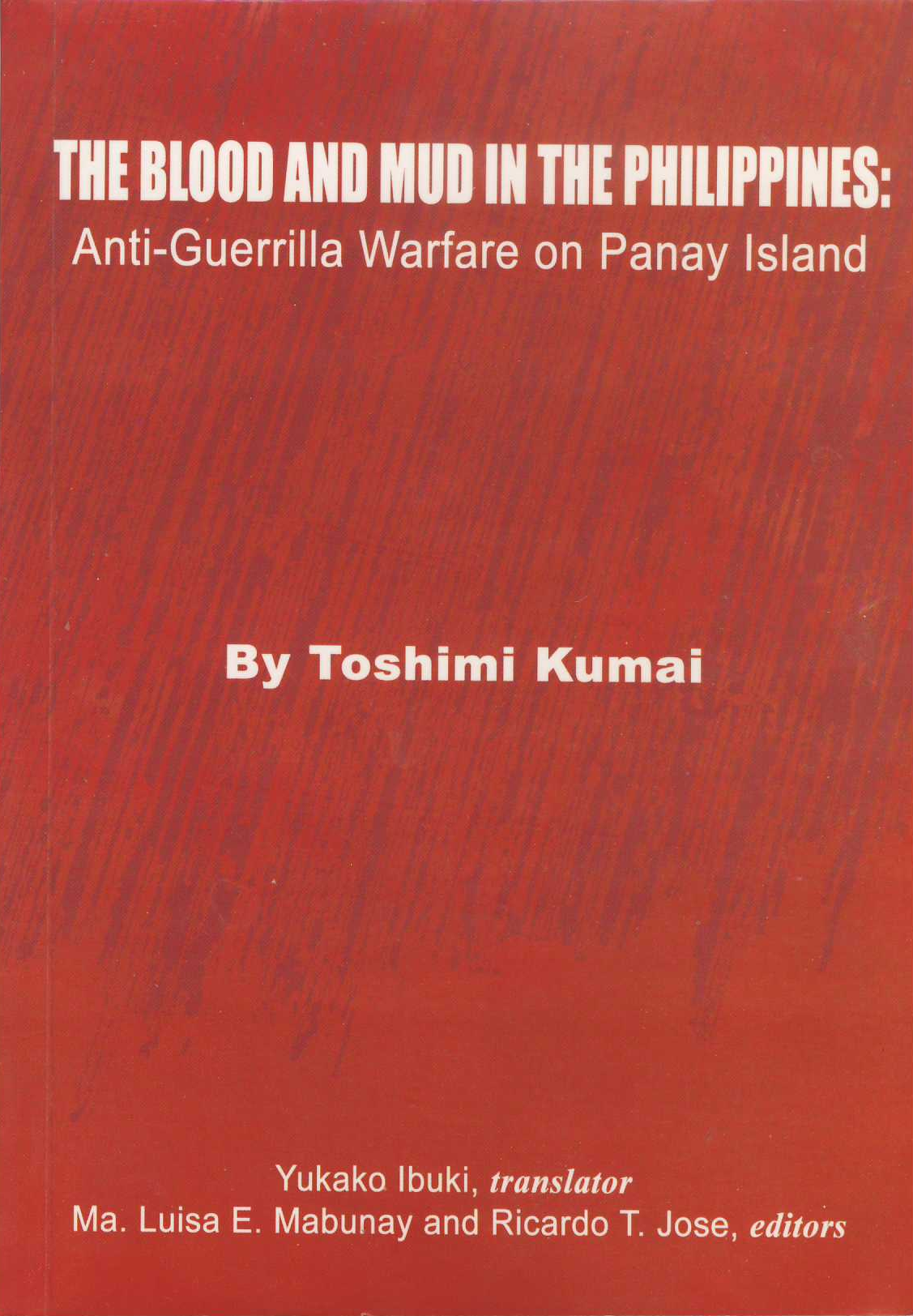
The Blood and Mud in the Philippines
Anti-Guerrilla Warfare on Panay Island
by Toshimi Kumai
Yukako Ibuki, translator
Ma. Luisa E. Mabunay and Ricardo T. Jose, editors
|
|
10.3 Driven Away with Stones
In the camp, we were surprised at the delicious food prepared for us but four or five days later, its quality suddenly deteriorated. This was because the 40th Division of the US Army that was in charge of the camp was reassigned for posting in Korea. The night before their departure, 2nd Lieutenant Jones and other officers in charge of the camp came to visit us. It seemed as though they would miss us who had joined in the fighting in Bocari.
Soon after, I checked the captured survivors against the roster of the whole unit made before the US landing. There were 1,560 survivors. Therefore, those killed in battles after the US landing numbered around 850. Around 120 H˘jin survived while the number of those dead was around 70 to 80.
The Tozuka unit POWs left for the camp in Leyte around 4 p.m. on September 15. We left the Cabatuan camp in a long line of trucks. Filipino citizens, high school students of lloilo shouted and threw stones at us.
From the second floor window of a house in front of the Iloilo Provincial Capitol, the wife of Dr. Daniel Ledesma, a German lady, was staring down at our vehicle. Only this lady seemed to see us off with compassion.
The row of our trucks managed to get through the turbulence in Iloilo City and reached the Iloilo harbor. We felt relieved and got on board the transport. Quite a number of the soldiers seemed to have been injured by the stones thrown at us and were being treated on the ship. It was only when I was aboard that I was able to take a relaxed look at the city. With lights twinkling in the evening, Iloilo City was beautiful. This was the city where, for more than three years, I left various memories of my youth. Although the citizens cursed us and drove us away with stones, I could never forget fallen soldiers and H˘jin and my affection for the city. I stood on deck until the lights of Iloilo were no longer visible. Thus, I said goodbye to the war dead and Iloilo in tears.
|
|